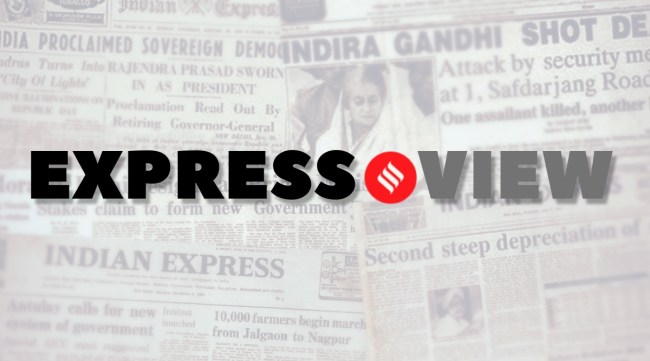Opinion New players in Northeast poll arena show an urge to change
It remains to be seen if the momentum for ‘change’ is powerful enough to trip the established players. But a new voice that attempts to raise issues that older actors shy away from, is welcome
 It remains to be seen if the momentum for “change” is powerful enough to trip the established players, who deploy their immense resources to overwhelm the smaller players.
It remains to be seen if the momentum for “change” is powerful enough to trip the established players, who deploy their immense resources to overwhelm the smaller players. KAM Meghalaya or the Voice of the People Party (VPP) or Rising People’s Party (RPP) are unlikely to be in a position to form the government in Meghalaya or Nagaland after the results are declared. The government will be formed by established parties and leaders, if post-poll reports and surveys are right. However, a host of new players have emerged in Meghalaya and Nagaland, which voted on Monday, and Tripura, where polling was held on February 16. These new entrants may not win many seats, but they point to a churn in society and dissatisfaction with the existing political class.
In fact, the rise of campaign groups and their entry in electoral politics is a trend visible in many small states. States such as Meghalaya, Nagaland, Tripura, Mizoram, or for that matter Goa, have relatively small constituencies where the size of the electorate is between 25,000 and 40,000 voters. This allows charismatic and/or resource-rich candidates to fancy their chances. Contests become more personality centric, and resourceful individuals with capital, clan and caste support are sought after by parties. The new entrants in politics hope to disrupt these arrangements and usher in change. KAM and VPP in Meghalaya and RPP in Nagaland, for instance, have candidates with a record of civil society activism — activists involved in campaigns against corruption and big dams, for unionisation of security guards and street vendors, for instance. Some of them have framed micro manifestos, making interesting promises such as establishment of “constituency clinics” and free coaching for competitive examinations. The record of parties such as the AAP and the Zoram People’s Movement in Mizoram suggests that movement-centric groups and civil society activists, armed with intent and luck, can sometimes challenge the big parties: The Zoram People’s Movement, an alliance of seven activist groups, fought the 2018 assembly election demanding prohibition, won 23 per cent votes and eight seats in the 40-seat legislature. The most impressive among the new entrants is the Tipra Motha, headed by the former state Congress chief, Pradyot Debbarma, which has promised a new deal to the indigenous communities in Tripura.
It remains to be seen if the momentum for “change” is powerful enough to trip the established players, who deploy their immense resources to overwhelm the smaller players. But a new voice that attempts to raise issues that older actors more beholden to congealed power and patronage networks paper over or shy away from, is welcome.





